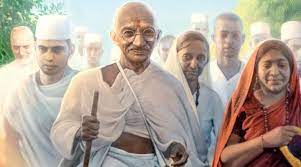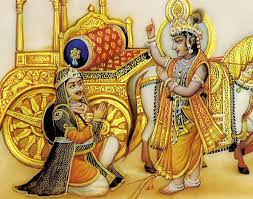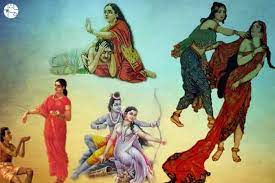
The life and legacy of Mahatma Gandhi
Mohandas Karamchand Gandhi, also known as Mahatma Gandhi, was a Prominent figure in the Indian independence movement and one of the most important leaders in the 20th century. His philosophy of non-violent resistance and civil disobedience inspired movements for civil rights and freedom across the world.
In this blog, we will explore the life and legacy of Mahatma Gandhi, including his early years, his philosophy of non-violence, his role in the Indian independence movement, and his lasting impact on the world.
Early Life:
Mahatma Gandhi was born in 1869 in Porbandar, a coastal town in the western Indian state of Gujarat. His father was a local politician, and his mother was deeply religious. Gandhi was educated in law in London, England, and later returned to India to practice law.

In 1915, Gandhi became involved in the Indian nationalist movement and began using his philosophy of non-violent resistance to fight for Indian independence from British colonial rule.
Philosophy of Non-Violent Resistance:
Gandhi's philosophy of non-violent resistance, also known as satyagraha, was based on the principle of ahimsa, or non-violence. According to Gandhi, non-violence was the only way to achieve true freedom and justice, as violence only begets more violence.

Gandhi's approach to non-violent resistance was based on three key principles: non-violent resistance, civil disobedience, and self-suffering. He believed that by using non-violent resistance, people could resist injustice without resorting to violence. Civil disobedience involved breaking unjust laws and accepting the consequences, such as imprisonment or fines. Self-suffering involved willingly accepting suffering and hardship as a means of drawing attention to an issue and inspiring change.
Role in the Indian Independence Movement:
Gandhi's philosophy of non-violent resistance played a central role in the Indian independence movement. He led numerous campaigns and movements for Indian independence, including the Salt March in 1930, where he and his followers marched to the Arabian Sea to collect salt in protest of British salt taxes.

Gandhi's efforts were instrumental in securing Indian independence from British colonial rule in 1947. However, his vision of a united India was not realized, and the country was partitioned into India and Pakistan, resulting in widespread violence and displacement.
Legacy:
Mahatma Gandhi's legacy extends far beyond the Indian independence movement. His philosophy of non-violent resistance and civil disobedience has inspired numerous movements for civil rights and freedom across the world, including the Civil Rights Movement in the United States and the anti-apartheid movement in South Africa.

Gandhi's legacy has also had a significant impact on the fields of human rights, peace studies, and conflict resolution. His emphasis on dialogue, understanding, and non-violence has been adopted by numerous organizations and governments as a means of promoting peace and resolving conflicts.
Conclusion:
Mahatma Gandhi's life and legacy continue to inspire people around the world. His philosophy of non-violent resistance and civil disobedience has had a profound impact on the world and has inspired movements for civil rights and freedom across the world.
Gandhi's vision of a world free from violence and injustice remains as relevant today as it was during his lifetime. His emphasis on non-violent resistance, civil disobedience, and self-suffering provides a model for those seeking to bring about positive change in the world.
AuthorDarshita Nautiyal
(The images used in this podcast are not owned by Anime Devta, they are just to help the readers)

